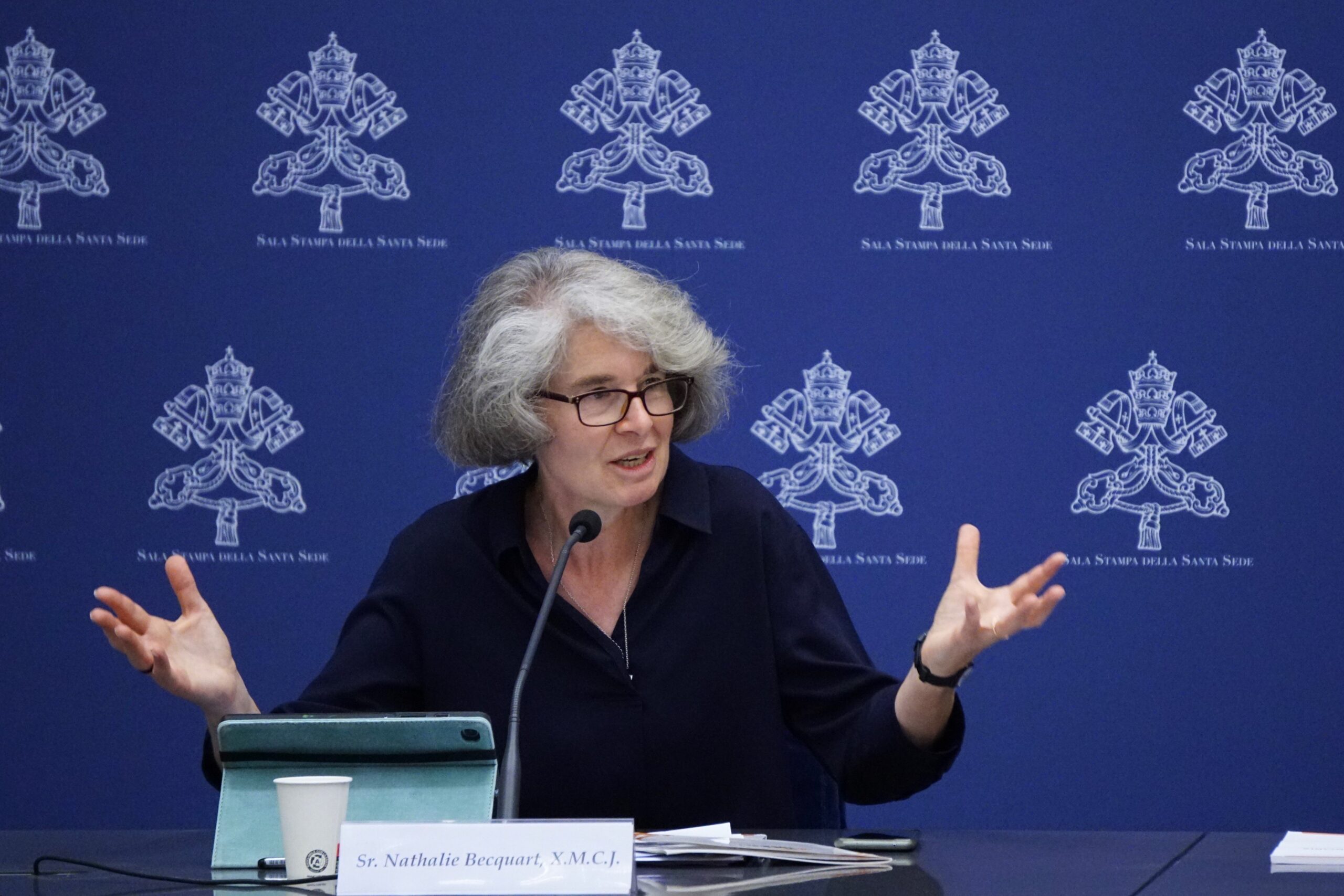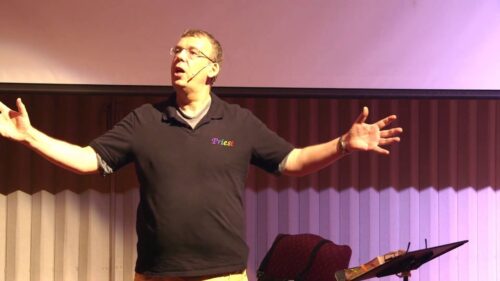The recent Synod on Synodality presents a vision of the church defined by mutual listening, dialogue and discernment that could open new pathways for more inclusive ministry and outreach. The goal of synodal conversion is a spiritual and ecclesial renewal to bear more fruit in the mission and, in turn, to better love and serve the men and women of our time. That is to say, all of them. “Tutti, tutti, tutti”, “no one is excluded,” as Pope Francis tells us so often.
While the synodal documents do not specifically address LGBTQ ministry, their vision of a listening, dialoguing, discerning church provides principles for developing more inclusive pastoral approaches. Significantly, the Synod recognized the need to listen to those who have felt the pain of feeling “excluded or judged because of their marital status, identity or sexuality” (no. 50). The document’s emphasis on human dignity, authentic relationships, communal discernment and ongoing conversion also offers a framework for ministry that genuinely welcomes and accompanies LGBTQ persons while remaining rooted in Catholic faith and tradition.
The synodal emphasis on conversion—relational, structural and ecclesial—points toward needed transformation in how the church approaches ministry and outreach. This includes examining where current practices may create barriers or cause harm. As the document states, “Listening to those who suffer exclusion and marginalization strengthens the Church’s awareness that taking on the burden of wounded relationships is part of its mission” (no. 56). Synodality “requires repentance and conversion” (no. 6); it is a path of reconciliation.
Dialogue and dignity: key principles for ministry
Several key elements of synodality highlighted in the final document are particularly relevant for fostering a more welcoming church for everyone, especially the marginalized. At the heart of the synodal dynamic is the centrality of baptism, which binds us together as members of Christ’’s body: “There is nothing higher than this baptismal dignity” (no. 22). So, in a synodal church— that is, a relational church— “nobody should be excluded.” The synodal path also emphasizes the importance of recognizing and receiving the gifts of all baptized persons.
This understanding of dignity leads to a vision of the church as fundamentally relational. As the final document states, “What emerged throughout the entire synodal journey…was the call for a Church with a greater capacity to nurture relationships: with the Lord, between men and women, in the family, in the local community, among social groups and religions, with all of creation” (no. 50). The synod’s focus on authentic relationships and human dignity provides a foundation for genuine encounter and dialogue in a spirit of reciprocity.
The synod’s commitment to listening and relationship-building is essential for understanding the lived experiences, needs, and gifts of LGBTQ Catholics and their families.
In a synodal church, everyone has something to give and something to receive. As the document states, “In the Christian community, all the baptized are enriched with gifts to share, each according to his or her vocation and way or condition of life” (no. 57). This principle calls for welcoming LGBTQ Catholics’ contributions to the life and mission of the church.
The document also stresses that synodality requires “listening attentively and respectfully to each person’s voice” (no. 84) and emphasizes the church’s call to “rebuild community life, to put a face to faceless entities and to strengthen relationships” (no. 111). This commitment to listening and relationship-building is essential for understanding the lived experiences, needs, and gifts of LGBTQ Catholics and their families.
‘Missionary creativity’ with LGBTQ Catholics
A key synodal principle is recognizing that unity does not require uniformity. As the document notes, “The unity of the Church is not uniformity, but an organic blending of legitimate diversities” (no. 39). This understanding creates space for cultural and pastoral approaches that respond to different contexts while maintaining communion. The synodal path calls for “missionary creativity” in developing “new forms of pastoral action and concrete processes of care” (no. 111).
A synodal understanding of lived ministry is one in which we walk alongside those to whom we minister, remaining open to listening and learning from them, and fostering closeness, mutuality and friendship. The minister is not above or separated from the people, but a companion on the journey, like Jesus on the road of Emmaus.
Formation is highlighted as crucial for developing the capacity for dialogue, discernment and inclusive ministry that such a lived ministry demands. The synod calls for formation that is “integral, ongoing and shared” and engages “all dimensions of the human person (intellectual, affective, relational and spiritual)” (no. 143). This type of formation could help develop pastoral skills and sensitivity needed for effective LGBTQ ministry.
The development of pastoral approaches should include the voices and insights of LGBTQ persons themselves, their families, and those engaged in ministry with them.
The document’s call for transparency, accountability and regular evaluation of pastoral practices (nos. 99–100) provides a framework for assessing whether ministry efforts truly serve their intended purpose of sharing God’s love and building up the community. This includes remaining accountable to those being ministered to and learning from their experiences, grounded in the dialogical vision the final document articulates. We experience that our diversity is a richness enlarging our perspectives.
Significantly, synodality calls for processes of communal discernment that involve “the widest possible participation” (no. 82). This suggests that the development of pastoral approaches should include the voices and insights of LGBTQ persons themselves, their families, and those engaged in ministry with them.
The document’s emphasis on the “prophetic voice” of synodality challenging “cultural individualism” and promoting “mutual care, interdependence and co-responsibility for the common good” (no. 48) points toward building genuinely inclusive communities. This includes addressing isolation and marginalization through concrete practices of welcome and belonging. The synodal method of Conversation in the Spirit has been experimented as a fruitful tool to include all voices and foster communion.
The future of a synodal church
Moving forward on this path will require patience, humility and trust in the Holy Spirit’s guidance. As the synod reminds us, authentic practices of synodality enable Christians to offer “a distinctive contribution to the search for answers to many challenges faced by our contemporary societies in building the common good” (no. 47). More inclusive ministry shaped by synodal principles could be one such contribution.
Implementing these synodal principles in Catholic ministry will demand sustained commitment, formation and willingness to engage in sometimes difficult conversations. However, the synodal path offers hope for developing ministry approaches that more fully embody the Church’s mission to be “the sacrament of the union of the human race with God” (no. 56)—a union that excludes no one from God’s love and the community’s care.




